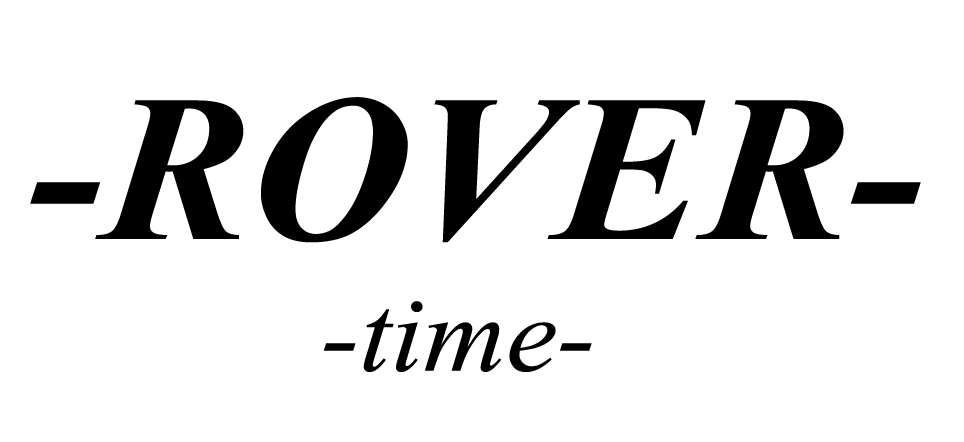Learn all about BTC Get Started with Bitcoin com
Content
- Understanding Bitcoin Address Essentials: Security, Formats, and Transactions
- What Is A Wallet Address? A Beginners Guide To Crypto Wallet Addresses
- What is tokenomics? A guide to crypto economics
- Addresses are built from public keys
- What are the Different Kinds of Wallet Addresses?
- Using Your Bitcoin Address to Grow with Cash App
- Why Does Asymmetric Cryptography Work For Wallet Addresses?
This handy list what is the btc wallet address ensures nodes do not need to search the entire history of transactions each time. This ensures that even if someone knows your public key (your wallet address), they cannot access your funds without the private key. The secret phrase is a string of words that is used to derive the private key. It is crucial to keep the secret phrase secure and not share it with anyone, as it is essentially the key to your crypto wallet.
Understanding Bitcoin Address Essentials: Security, Formats, and Transactions
They come up as a trusted intermediary between the transaction parties. This does not fit the original spirit of Bitcoin and forces you to entrust your funds to a third-party entity. More than that, mobile wallets are regarded as weak in terms of https://www.xcritical.com/ security, as smartphones are not the best-protected devices on earth. Advanced bitcoin users can also include additional instructions within certain addresses, so that conditions must be met to spend the bitcoin beyond signatures from private keys. If you grab a public key from just one xpub, then your address will belong to a single-signature wallet.
What Is A Wallet Address? A Beginners Guide To Crypto Wallet Addresses
This takes the guesswork out of trying to time the volatile cryptocurrency markets by standardizing purchases. If you should ever lose your wallet login credentials, you can use the backup to regain access to your coins. Whether you’re on the train or sneakily at your job, you have access to your cryptocurrencies everywhere. For example, 1A1zP1eP5QGefi2DMPTfTL5SLmv7DivfNa is different from 1a1zP1eP5QGefi2DMPTfTL5SLmv7DivfNa. First, let’s have a quick look at “cryptography” – after all, it is the domain to which cryptocurrencies owe their name. Vesting is a process where a certain amount of a project’s overall token supply is set aside for a period of time and released after certain conditions are met.
What is tokenomics? A guide to crypto economics
Bitcoin Cash addresses may sometimes look like a Bitcoin address. Since BCH was a fork of BTC, some addresses may begin with “3”. However, later on, new address formats that begin with “q” or “p” were introduced. Zengo is an MPC wallet, and unlike traditional wallets, it does not have private keys and, therefore, cannot provide you with one. Blockchain transactions cannot be reversed or canceled once confirmed.
Addresses are built from public keys
It also ensures that someone you have entrusted with your keys doesn’t lose them or deny you access to them. Cryptocurrency exchanges have started offering custodial key storage for their users. Cryptocurrency exchanges are highly prized targets for cybercriminals. Some new hardware wallets come with the ability to connect to your device through Bluetooth. Use these with caution because Bluetooth is a wireless signal that can be accessed by unwanted parties when it is turned on. Many mobile wallets can facilitate quick payments in physical stores through near-field communication (NFC) or by scanning a QR code.
What are the Different Kinds of Wallet Addresses?
Your address is an important part of that process, giving the nodes the necessary information to create new blocks on the chain securely. To understand how, let’s look into what a crypto wallet address is for. You use a bitcoin wallet to show that you are the owner of your bitcoins. Although we are talking about a wallet, technically it works slightly differently.
Using Your Bitcoin Address to Grow with Cash App
Your Cash App Bitcoin address facilitates the receiving and sending of BTC transactions tied specifically to your account. Treat your address with care by only sharing with trusted parties for incoming transfers to your balance. Saving or bookmarking the latest address lets you double check any information related to your Bitcoin holdings on Cash App.
- A Bitcoin address is a unique identifier that serves as a virtual location where the cryptocurrency can be sent.
- One of the crucial means of safeguarding your crypto journey if you use a mobile wallet, is 2-factor authentication (2FA).
- The origins of cryptocurrencies can be traced back to academic and military use cases, which eventually expanded to the private sphere.
- You cannot change an existing crypto wallet address, but you can generate a new one and send your assets there.
- By familiarizing yourself with the essential aspects of how a bitcoin address operates, you can navigate the process with greater confidence and security.
- Sending bitcoin is as easy as choosing the amount to send and deciding where it goes.
General unsecured creditors are lower in priority on the list of creditors in a bankruptcy proceeding. Wallet safety is essential, as cryptocurrencies are high-value targets for hackers. Some safeguards include encrypting the wallet with a strong password, using two-factor authentication for exchanges, and storing any large amounts you have offline.
Why Does Asymmetric Cryptography Work For Wallet Addresses?
Direct integration with a USD balance and linked bank account or card allows moving cash in and out of crypto markets seamlessly. You can liquidate Bitcoin holdings to fiat to capture gains or fund additional purchases without needing transactions across multiple platforms. A Bitcoin wallet address enables both receiving and sending value. So Cash App allows free transfers to contacts also on the platform or paying bills with your BTC balance. Despite security best practices, Bitcoin will always pose certain risks relative to keeping funds in insured bank accounts. Don’t store large balances solely on Cash App unless you fully understand the responsibility assumed for protecting access yourself without the help of centralized financial authorities.
We mentioned earlier that crypto wallet addresses are merely strings of 1’s and 0’s (because that’s how computers store and process information). A private key is a secret code that is used to access a cryptocurrency wallet and authorize transactions. It is a long string of alphanumeric characters that is mathematically related to the public key. Think of it as a password to access your cryptocurrency funds. It is crucial to keep your private key secure and not share it with anyone. A cryptocurrency wallet address is a unique string of letters and numbers used to send and receive digital assets, such as cryptocurrencies and non-fungible tokens (NFTs).
This connection allows users to create unforgeable signatures, which can only be validated by other participants of the network who have knowledge of the corresponding public key. You can easily find your BTC address in most wallets by clicking the “Receive” button. It will generate a new address or show the existing one, depending on the wallet type and its settings. The address has the form of a string of 26 to 35 characters (numbers and letters in lowercase and uppercase). Desktop wallets are another type of crypto wallet application.
A pay-to-pubkey-hash (P2PKH), or legacy address, is the oldest and original bitcoin address format. This address format is not widely used today as transaction costs are higher using this format. However, support for this in applications is still encouraged to be compatible with older legacy wallets that have not upgraded to new address formats. All critical actions on hardware wallets require inserting a PIN code.
You can use the same Ethereum wallet address to hold both Ether (ETH) and any ERC-20 token. Decentralized finance has many similarities to traditional finance. Both share a similar value exchange medium, i.e., a “currency”, and both share a similar currency storage mechanism, i.e., a “wallet”. Cryptography and more specifically asymmetric cryptography was the forefather and technological foundation upon which Satoshi Nakamoto created Bitcoin, hence the name “cryptocurrencies”. The term cryptography is derived from old Greek “kryptos” and means “hidden” or “write secretly”.
Cold wallets lack Internet connectivity and are impossible to steal online. A hacker would need to steal the device to access it physically. Always make sure you are using the correct blockchain when making a transaction, or this could result in your losing your coins as crypto transactions are not reversible. The variety of Bitcoin addresses, such as Legacy, SegWit, and Taproot, represents the evolution of the Bitcoin network, offering efficiency, transaction costs, and privacy benefits. Fortunately, many modern crypto and Bitcoin wallets today accommodate many of those addresses. Bitcoin addresses are akin to email IDs but are best used as ‘single-use tokens’.
Address reuse is the practice of receiving more than one transaction to a single bitcoin address. Although there are obvious usability benefits of reusing an address, this practice is not recommended due to the negative impact on privacy and security. Reusing an address makes it easier to correlate transactions with a particular user, thus hurting the pseudonymity of the user and thus the overall censorship resistance of the network. Without access to your private key, no one will be able to steal Bitcoins from your wallet if you post your BTC address publicly or send it to someone. Thankfully, bitcoin addresses also include a highly effective safety net to help you avoid typos.
Your bank account number basically points to the account in which your funds are held in the bank and anyone can send you money if they have your bank account number. To get a private key from a wallet address, you will need to access the wallet software or service you used to create the address. The specific steps may vary depending on the service or software you use.
If two cryptocurrencies follow the same token standard, they can often share the same wallet address. This is because the underlying technology and the way addresses are generated are compatible. A QR code is a two-dimensional barcode that can store the alphanumeric address. The most common answer users get to their question “what happens when I send crypto to a wrong wallet address” is that they will lose their funds forever. Exchanges like Blocktrade are required to verify users’ identities and postal addresses in accordance with KYC/AML regulations.
You can often use a wallet address’s transaction history on a block explorer to find the user’s social media accounts. Sometimes the crypto community is kinder than you think, and in some cases mistakenly sent funds are sent back in good faith. The most recent standard, Taproot or BC1P addresses, starts with ‘bc1p’.


